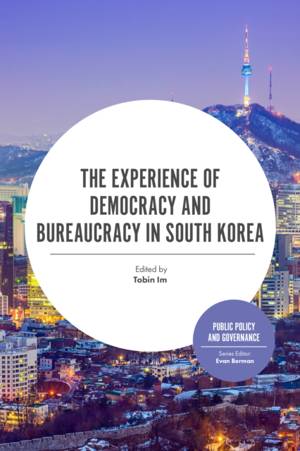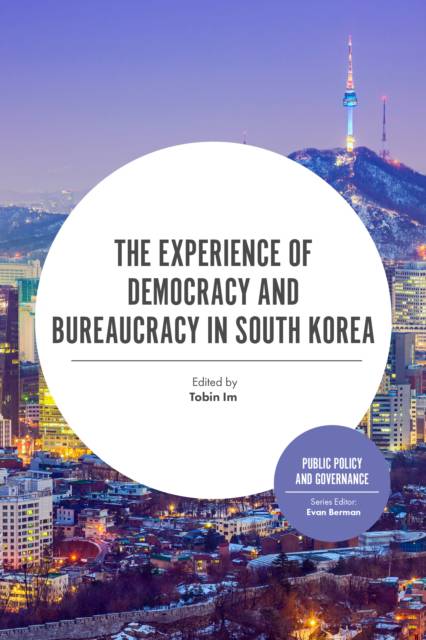
- Afhalen na 1 uur in een winkel met voorraad
- Gratis thuislevering in België vanaf € 30
- Ruim aanbod met 7 miljoen producten
- Afhalen na 1 uur in een winkel met voorraad
- Gratis thuislevering in België vanaf € 30
- Ruim aanbod met 7 miljoen producten
Zoeken
Omschrijving
South Korea is renowned as one of the success stories of fast economic development. The Korean developmental state was a highly efficient, meritocratic, and fully monopolized coercive force. These resources were skilfully leveraged to shape the direction of private sector actors towards strategic initiatives. However, these very same resources could have resulted in the bureaucracy retaining its power indefinitely. Instead, step-by-step, the resources of the bureaucracy, which serviced the authoritarian leadership in the developmental period, were exercised towards democratization. What were the conditions that made this transformation possible?
The Experience of Democracy and Bureaucracy in South Korea addresses this question, filling the existing gap in the academic literature and presenting political implications. It explores the ways in which bureaucracy may not only be compatible with democracy but, more ambitiously, the conditions under which it can enhance it. The chapters examine the unique systems and institutions of the Korean bureaucracy including the National Election Commission, the police force, local government, the ceiling recruitment strategy, and procurement policy.
This timely collection will be of interest to researchers, graduate and undergraduate students in public administration and policy. It will also be a useful reference for bureaucrats in developing countries who seek to design policy for bureaucracy in concurrence with democratization.
The Experience of Democracy and Bureaucracy in South Korea addresses this question, filling the existing gap in the academic literature and presenting political implications. It explores the ways in which bureaucracy may not only be compatible with democracy but, more ambitiously, the conditions under which it can enhance it. The chapters examine the unique systems and institutions of the Korean bureaucracy including the National Election Commission, the police force, local government, the ceiling recruitment strategy, and procurement policy.
This timely collection will be of interest to researchers, graduate and undergraduate students in public administration and policy. It will also be a useful reference for bureaucrats in developing countries who seek to design policy for bureaucracy in concurrence with democratization.
Specificaties
Betrokkenen
- Auteur(s):
- Uitgeverij:
Inhoud
- Aantal bladzijden:
- 296
- Taal:
- Engels
- Reeks:
Eigenschappen
- Productcode (EAN):
- 9781787144729
- Verschijningsdatum:
- 12/10/2017
- Uitvoering:
- Hardcover
- Formaat:
- Genaaid
- Afmetingen:
- 152 mm x 229 mm
- Gewicht:
- 539 g

Alleen bij Standaard Boekhandel
+ 457 punten op je klantenkaart van Standaard Boekhandel
Beoordelingen
We publiceren alleen reviews die voldoen aan de voorwaarden voor reviews. Bekijk onze voorwaarden voor reviews.








